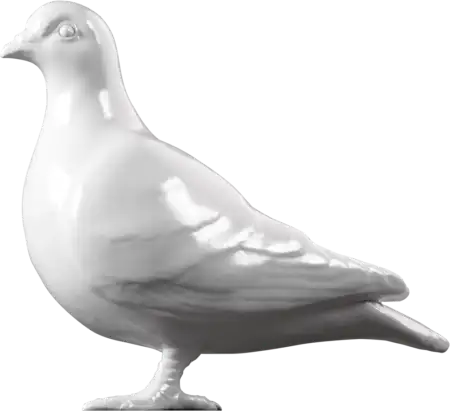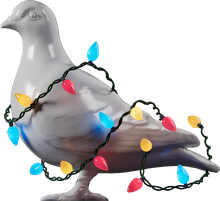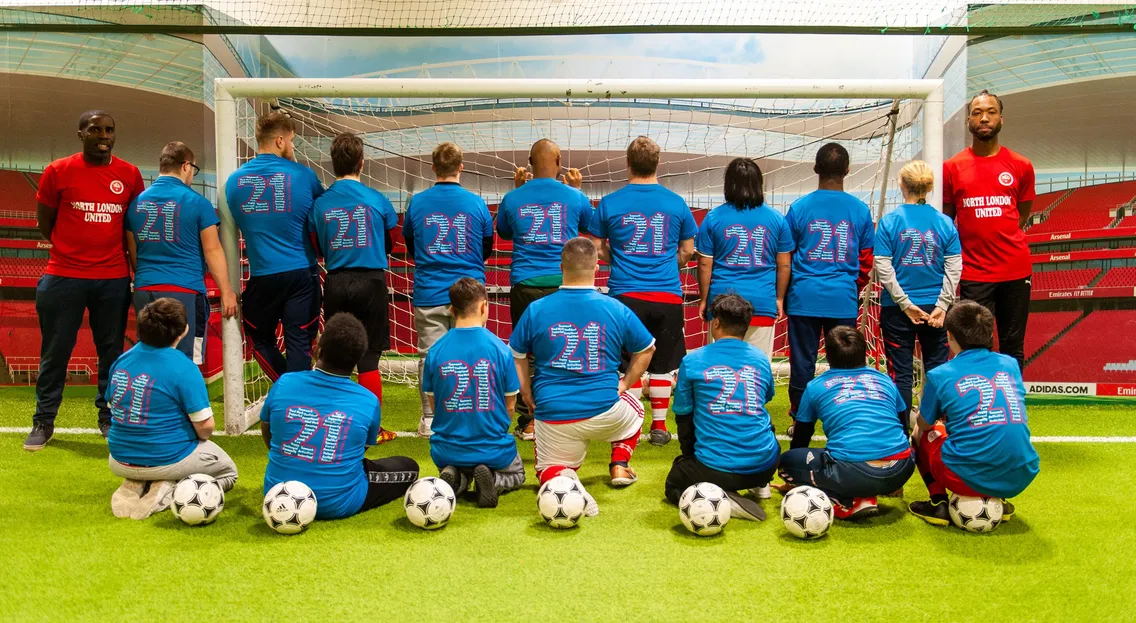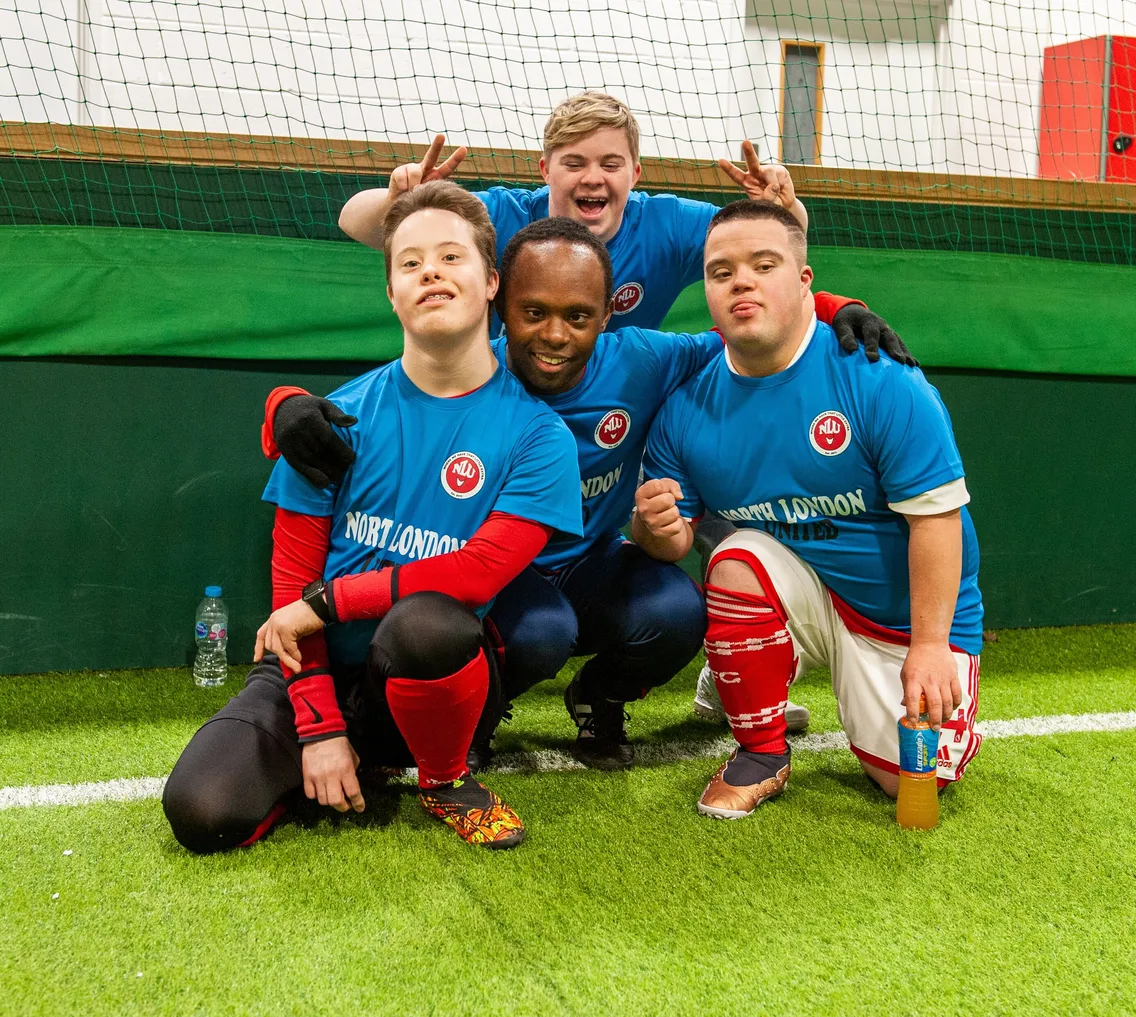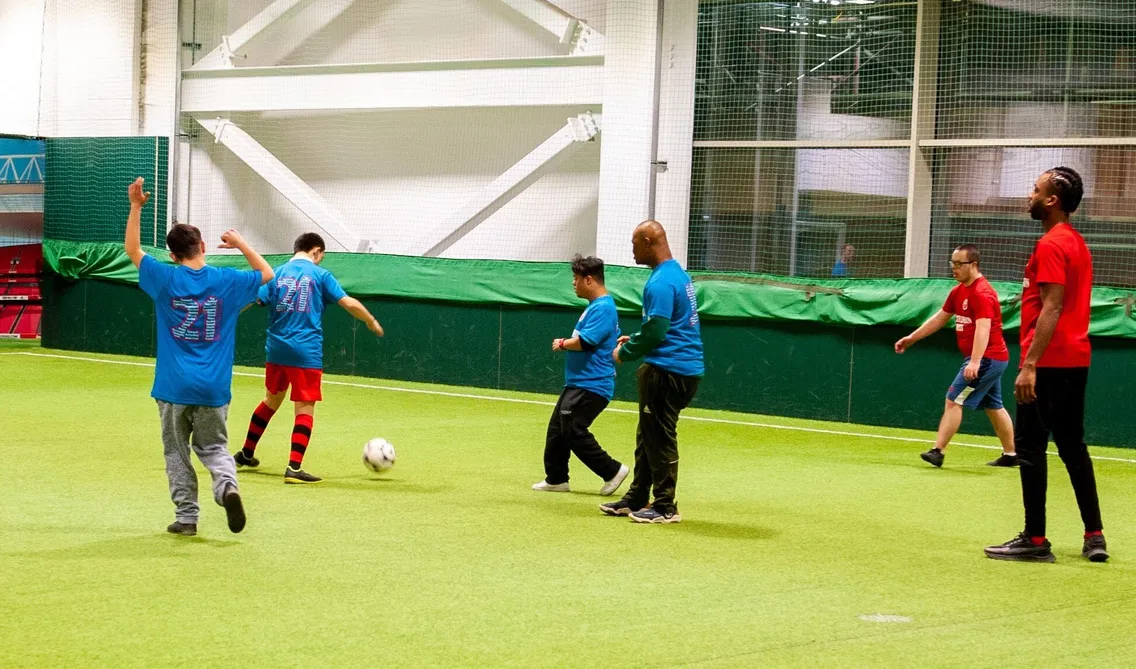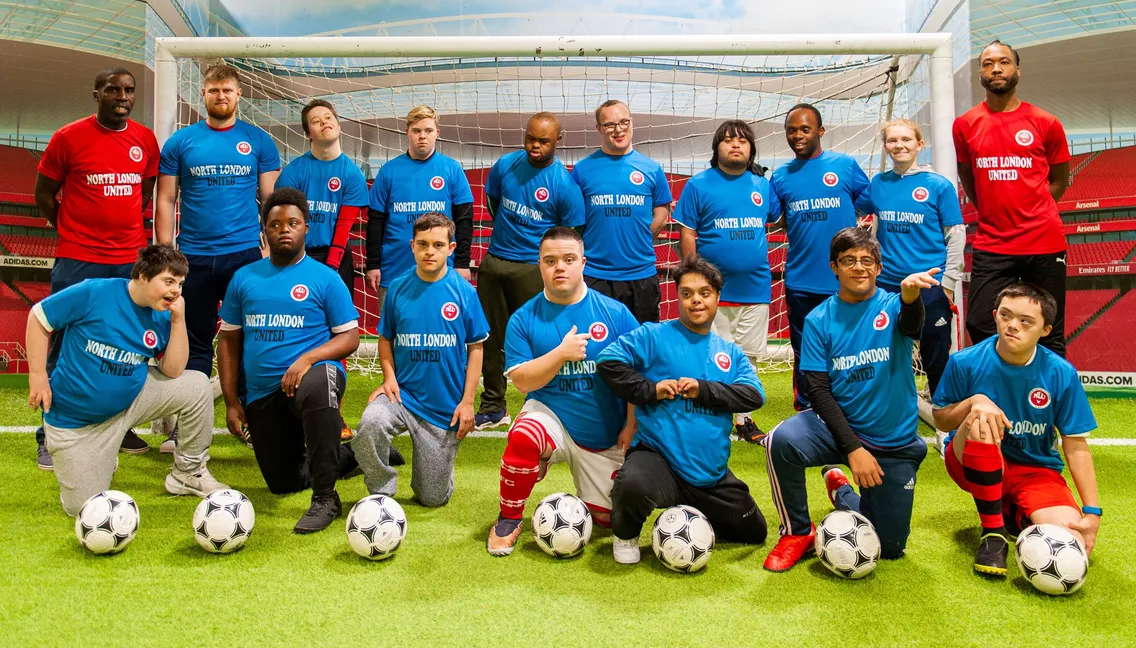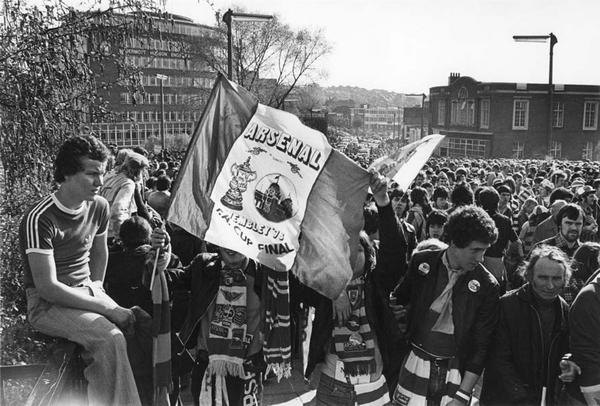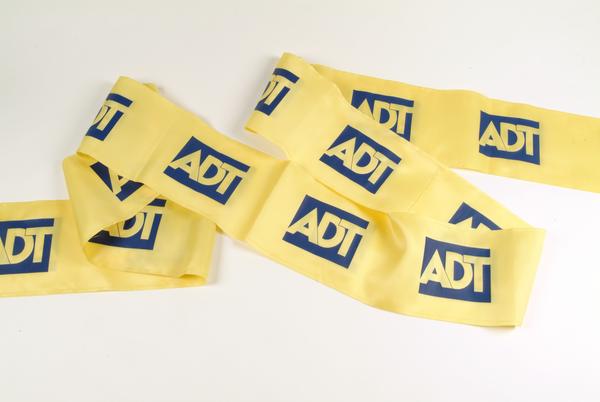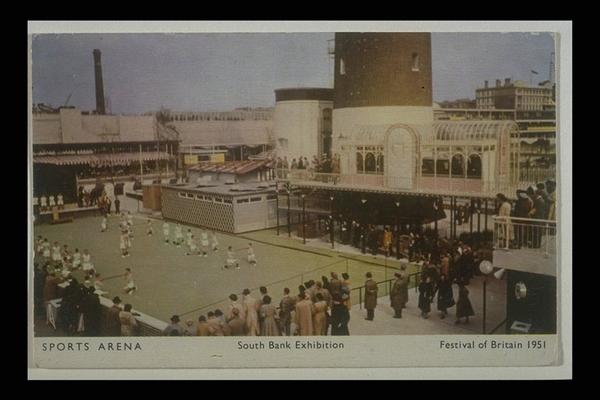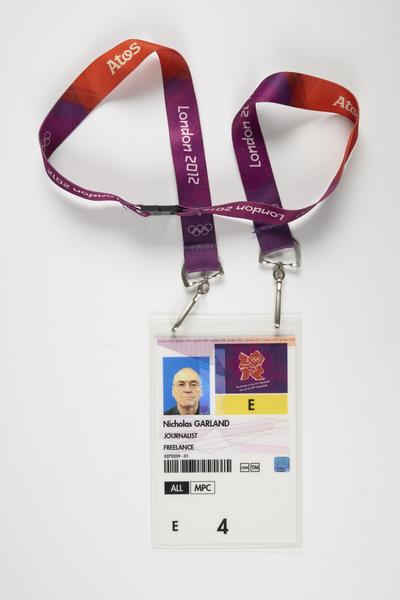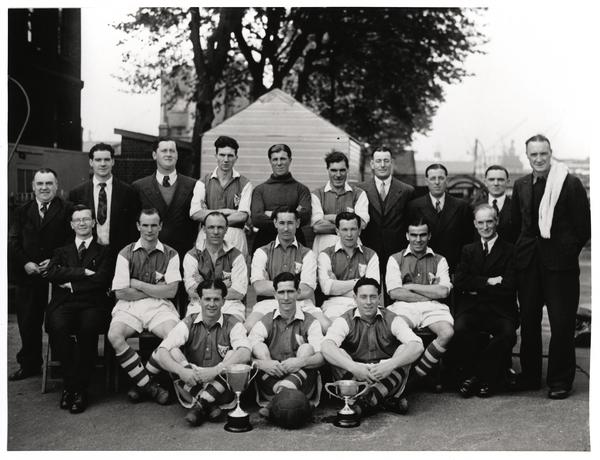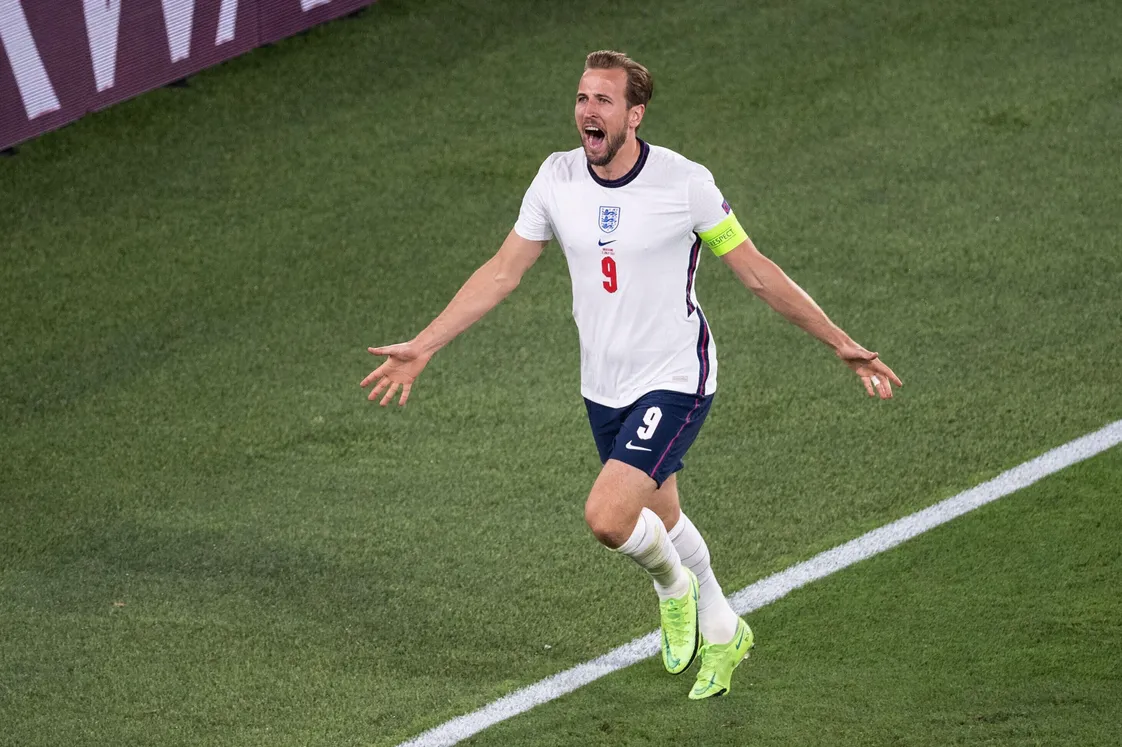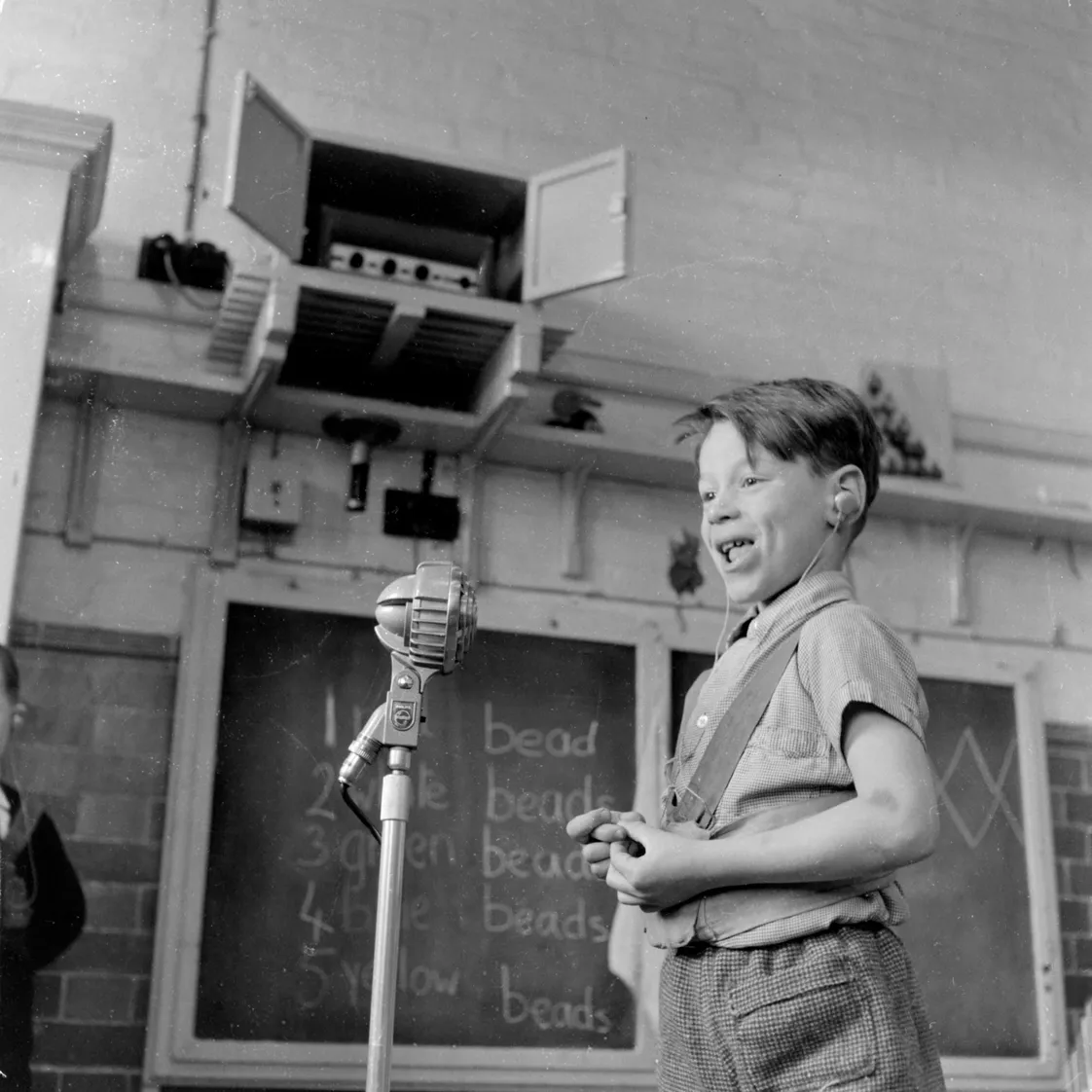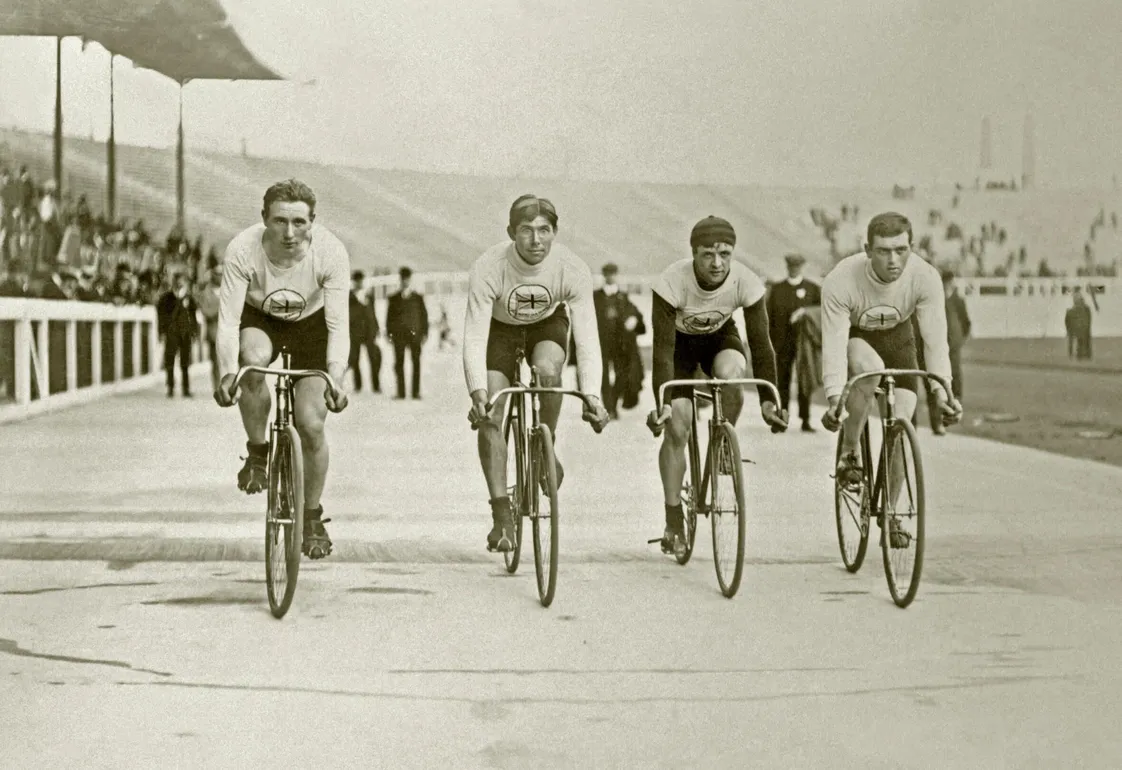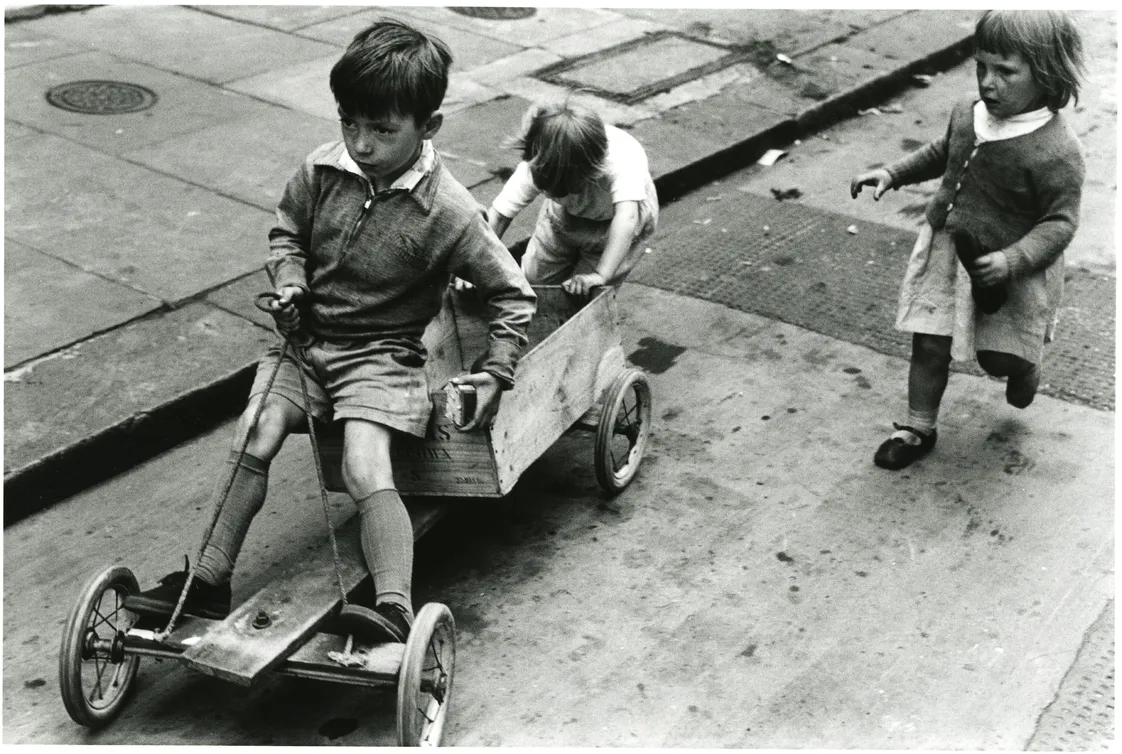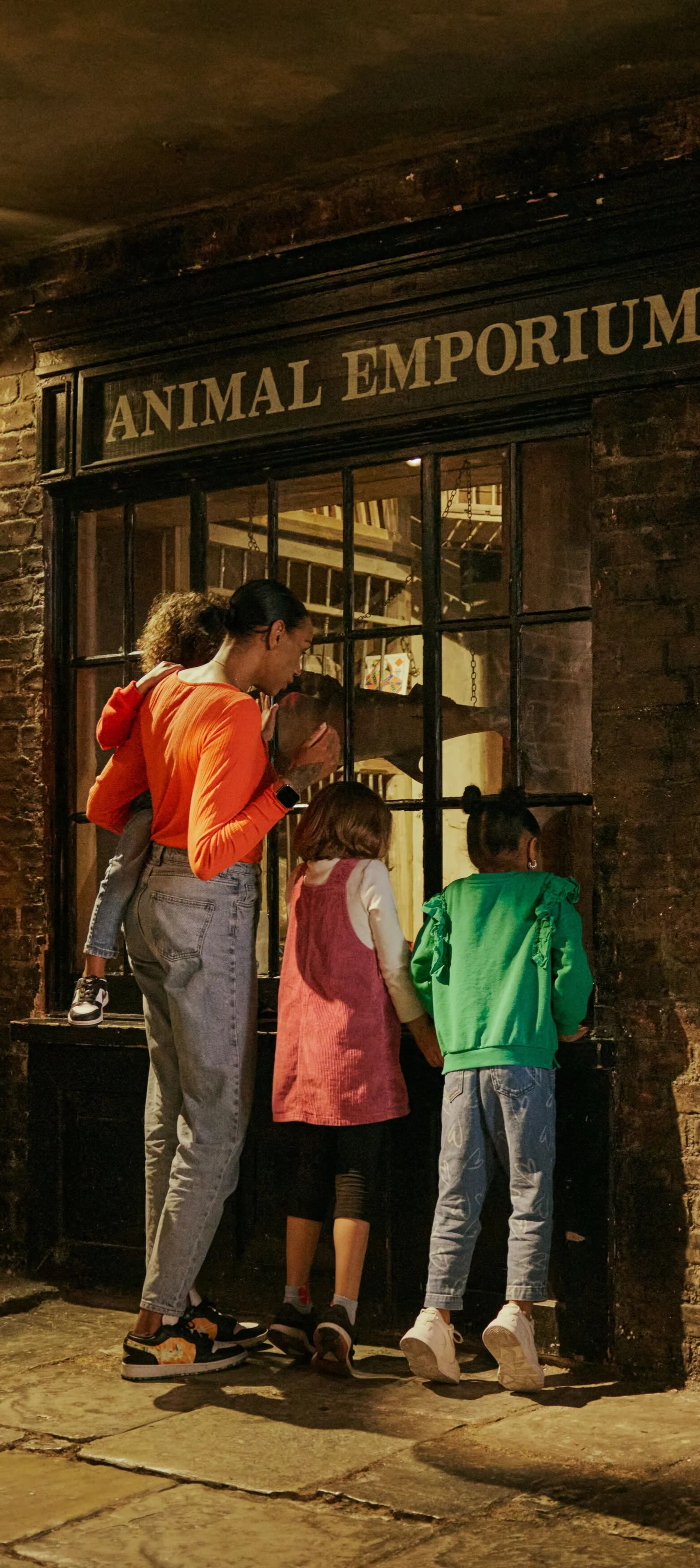20 March 2023 — By Harold Bennett, Natasha Vicars
The inspiring story behind North London United
North London United is a football project for young people born with Down syndrome. Founder and coach Harold Bennett talks about how football can make unexpected differences to young people’s lives.
“It’s not about football, it’s about opportunities”
“I really want to thank you for the sessions. My child doesn’t know too much about football…but his confidence has gone through the roof!” a parent told Coach H of North London United (NLU). For Harold Bennett aka Coach H, the group’s head coach and founder, this was a validation of all his hard work.
NLU is a football project Bennett had started, with the aim of supporting young people (5–25 years) with DS to receive physical, health and social benefits by participating in football sessions in Islington. After 10 years of working together and surmounting many challenges, the organisation put together words from members – describing what the group means to them – onto their new 2023 training t-shirt. This includes ‘Teamwork, Confident, Supported, Understood’ among many others.
“North London United gives me friendship and teamwork – this is important to me”
Emmanuel (24)
“North London United gives me friendship and teamwork – this is important to me, as I like playing football with other players and having lots of fun. It is a good football session where we do exercises, and play at Arsenal Hub. I put forward the word ‘exceptional’ for the new training top,” shares Emmanuel (24).
According to 2021 data, it was estimated that one in every 1,000 babies born in the UK will have Down syndrome (DS), and there are around 47,000 people in the UK with the condition. Caused by the presence of an extra chromosome – an extra copy of the 21st chromosome – in a baby’s cells, DS usually affects intellectual and physical abilities in varying degrees.
The group’s 2023 training t-shirt has been added to London Museum’s permanent collection, as part of the Curating London's Sport project to work together with Londoners in developing the museum’s collection to better reflect the diversity of contemporary London.
In this interview, Coach H tells us how such a unique football organisation was created, his motivations and what the initiative represents.
Natasha Vicars: Where did the idea come from to create NLU?
Harold Bennett: NLU was born in 2013, after a mother whose child has Down syndrome (DS) approached me to ask if I could start a football project for children with DS. I’m a coach, and the mother liked the way I worked with her child through my mainstream football activity. I didn’t say ‘yes’ immediately as I wanted to make sure that I could do something at a standard suited to the needs of young people with DS. I was thinking about logistics, costs — plus ‘there’s only one child, how do I find out about the rest of them?’ So, it was a bit of a fact-finding journey. I did my research and came across the Down’s Syndrome Association (DSA). In the past, it had funded some professional football clubs to develop inclusion programmes, so I took pointers from their model.
I also had to fund it out of my own pocket. I was able to hire a court at a local sport centre and the DSA were able to share the invite to their contacts. Eight young people showed up for the first session, and North London United kicked off!
“I have seen sport help shape my life, it’s…kept me out of trouble growing up...”
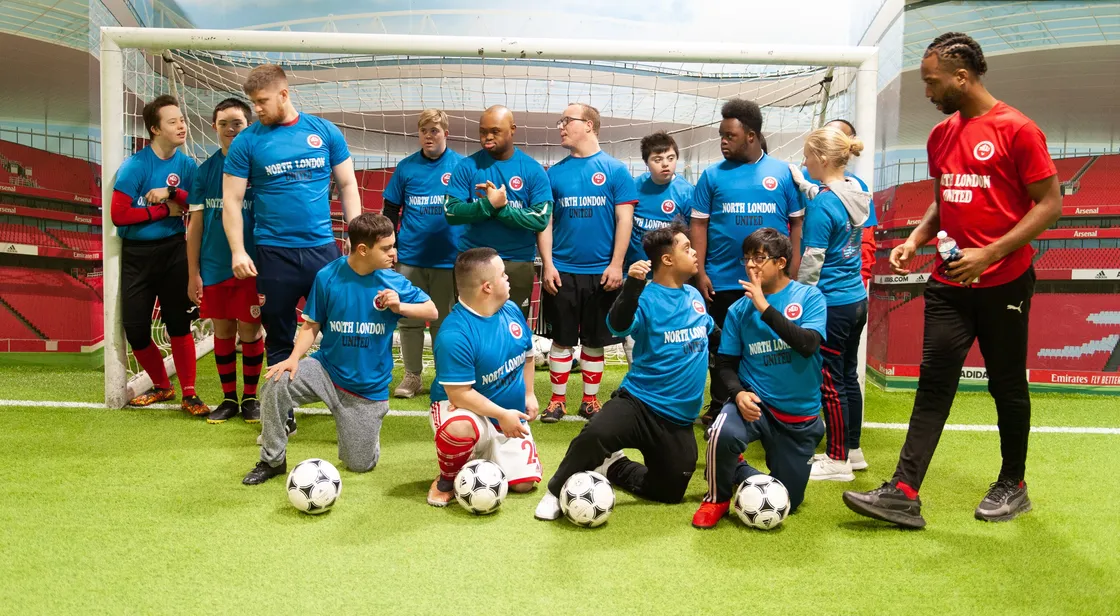
The participants have weekly training sessions with coaches.
What was the vision?
When you set up a sport project, one of your aims is to help the participants to become better players. Our vision was similar, but we also wanted to help the young people engage socially and make new friends. Most of them hadn’t met so many other people with DS at one time. Our model is to coach our participants and help them develop physically, strengthen their muscle tone, and improve their coordination, skills and balance.
“My child doesn’t know too much about football…but his confidence has gone through the roof!”
Parent of one of the NLU participants
I have seen sport help shape my life, it’s kept me focused, kept me out of trouble growing up, and has provided a career path for me. So, knowing this I wanted to use sport to impact the lives of our participants.
Last year, a parent said to me, ‘I really want to thank you for the sessions. My child doesn’t know too much about football…but his confidence has gone through the roof!’ For me, it isn’t about trying to find the next Lionel Messi, it’s about using sport to develop in whatever way best fits the participants.
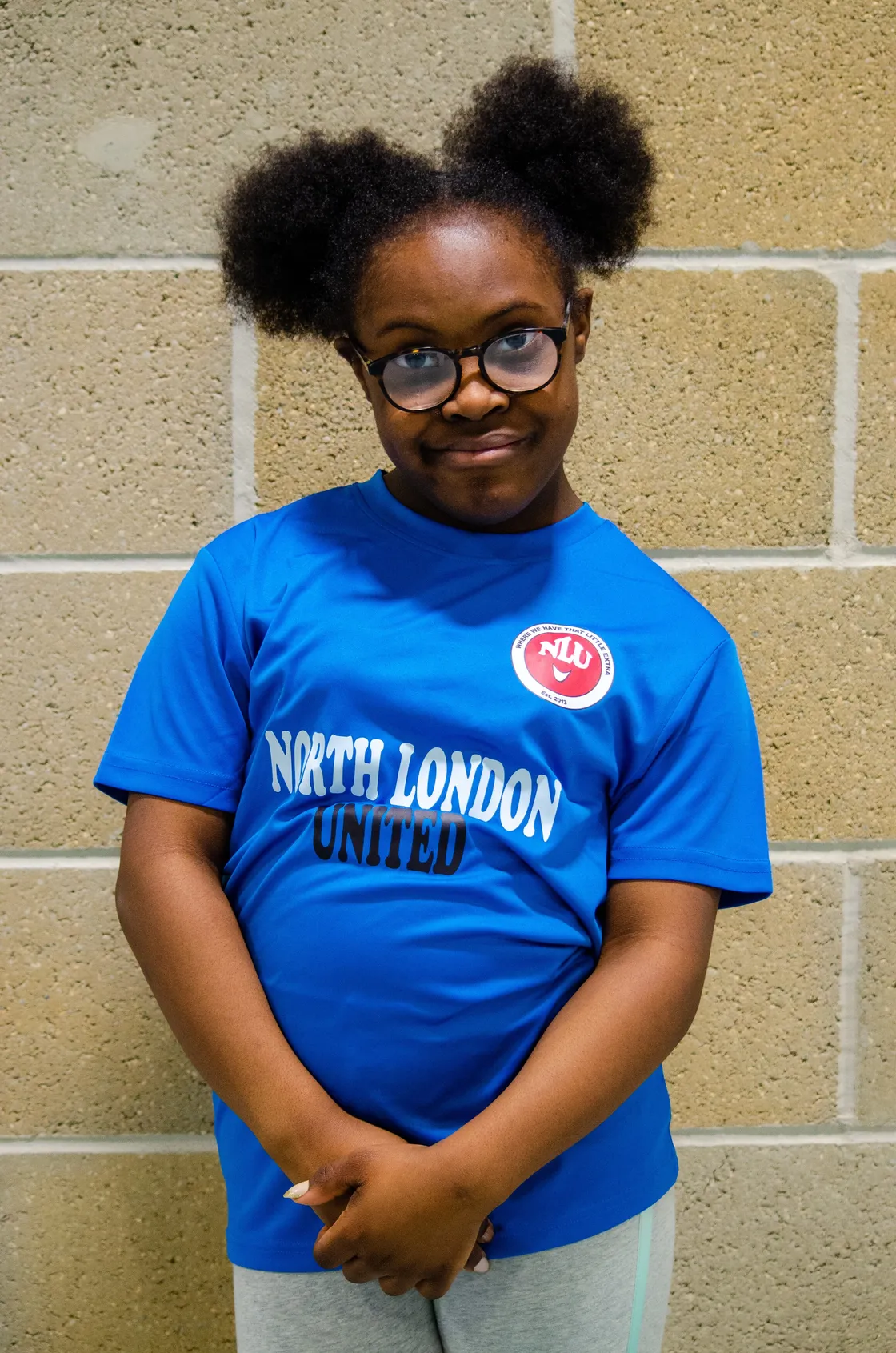
From interacting with each other, having fun and seriously absorbing instructions from the coaches, each session is packed with activities.
How has NLU evolved since 2013?
I quickly discovered that alongside benefits to young people, NLU also benefits the parents and carers. I’m aware that I’m not just a coach, I too am a parent of a child with DS. So, I spend time talking to the parents/carers – ‘How’s your week been? How are things with your child in school?’ It’s a holistic approach; it’s not just about the young people, it’s also about the parents and carers.
One year after forming, we were approached by Arsenal Football Club to go to their brand-new complex, the Arsenal Hub. Arsenal is keen to support the local community, and to support projects like ours. They are committed to raising awareness of DS.
“Community, friends, teamwork, hard work”
Our partnership with Arsenal enables our young people to access opportunities, such as attending matches, meeting players, taking part in football tournaments, and celebrating World Down Syndrome Day. We were also asked to take part in the media campaign to launch a new Arsenal kit.
Leah Williamson, captain of the England Women’s team – and Euro 2022 champions – has attended our session, as well as other Arsenal players. One of our participants will be represented in a permanent mural on the outside of the stadium, recognising their support for the club. Overall, the relationship is really inclusive and means our members can see themselves as part of a wider community.
Why is inclusion such an important issue?
In the 1970s, children born with DS were not included in mainstream schooling. I am glad that through a series of legal developments from 1981 onwards, this has changed a great deal. Pupils with DS can now attend mainstream schools, and by law must receive the necessary education and learning support from the school they attend.
I founded NLU to be an environment where young people with DS can develop and achieve, where they can thrive and grow with the right support. We now have about 25 young people attending – aged from 5 years to 25 years – all from the London area, and we now run two sessions a week.
Tell us about the words in the 2023 NLU training t-shirt that we’ve collected, and what the project means to the young people?
Some mentioned the words ‘community, friends, teamwork, hard work’ and others were more personal saying ‘happy, valued, excited and supported’. Their words have helped me appreciate that each person is unique, and they are individually getting something different. To me, those words celebrate the value and the community that NLU creates.
While raising awareness around Down syndrome, what would you like people to reflect upon?
I would say different people contribute to society, and people born with DS have so much to contribute. Personally, I thank God for the impact my daughter has brought into my life. My life goals have changed. I am much more about embracing life’s opportunities and living in the moment.
We are told that people with DS can achieve many things. Well, I would add ‘with the right support’, people with DS can achieve many things. I’m happy to see people with DS in roles as TV presenters, actors and fashion models, however, the percentage of those who get those chances is very small, and I believe with more support and more opportunities created, people born with DS will achieve that and so much more.
London is a wonderful, diverse but fast-paced city, and it is so easy to miss or forget those who are unable to keep up. So, what I am saying to our beautiful city is, let’s embrace and support those born with DS, creating a platform that provides opportunities and recognises their values and contribution to society.
Natasha Vicars is Curator at London Museum.
Curating London was a four-year contemporary collecting programme, funded by Arts Council England, which places Londoners’ lived experience at the heart of what we do. In 2022–2023, we focused on the many ways that sport and exercise are an important part of Londoners’ lives.
